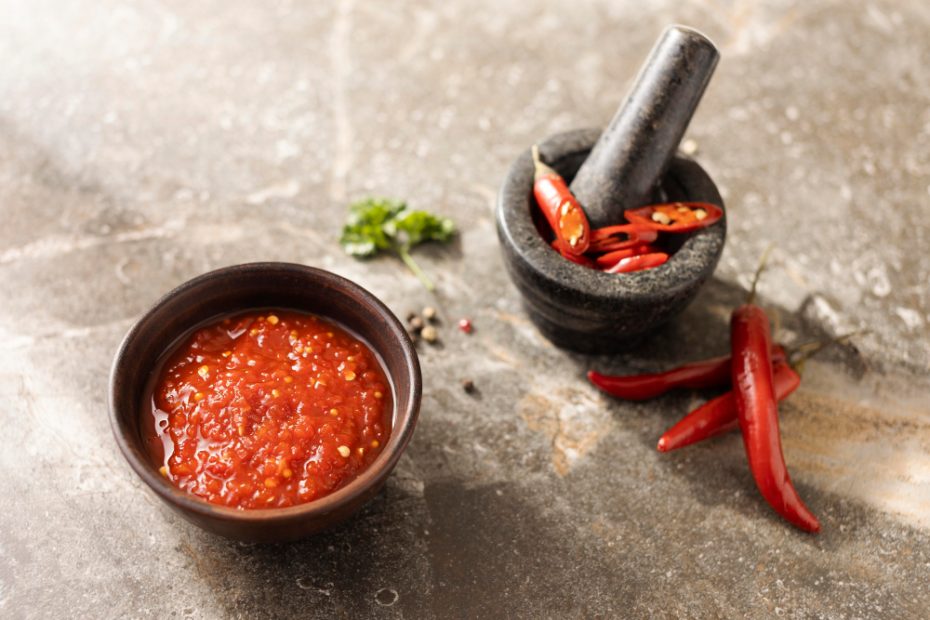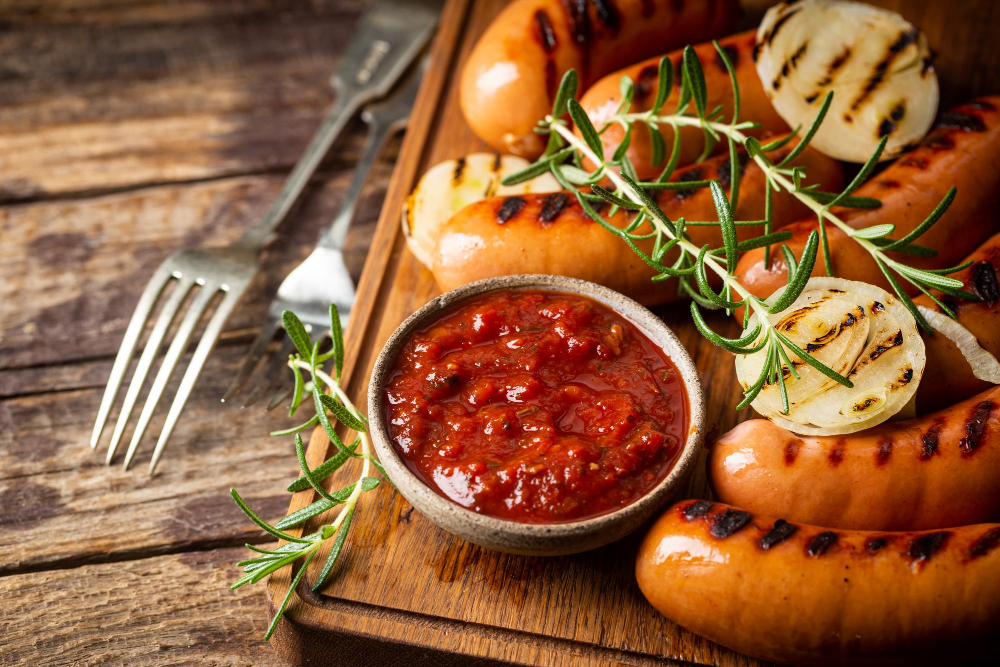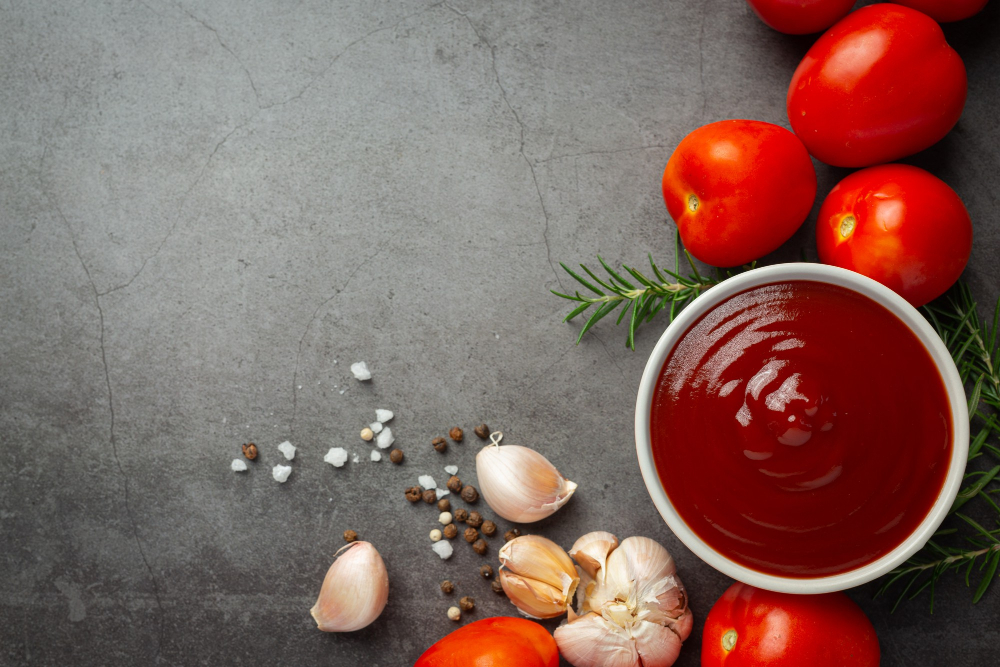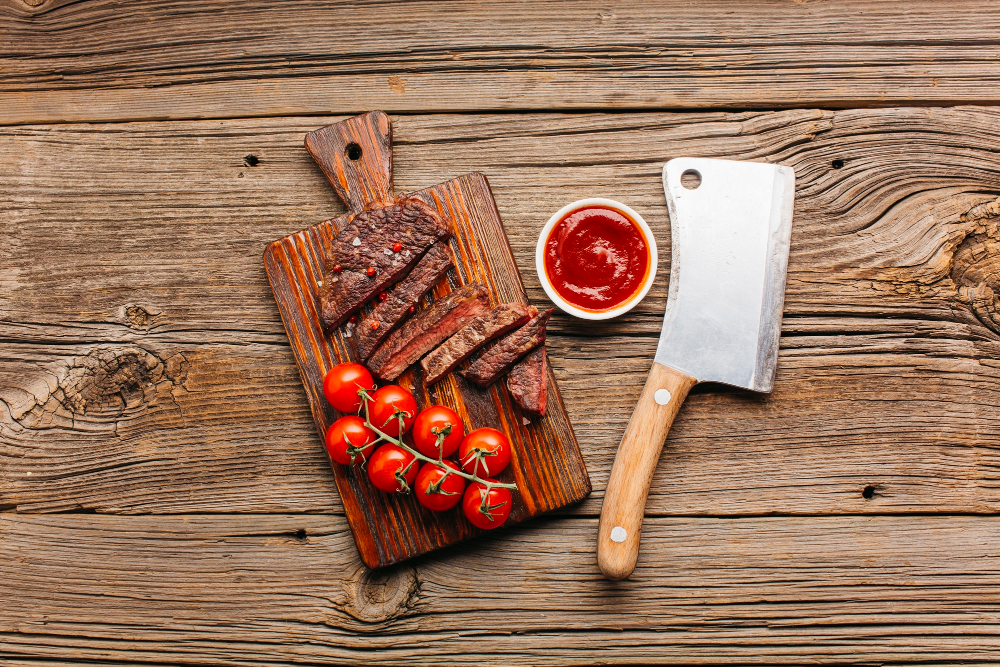How long can you store BBQ marinades?
BBQ marinades are a popular way to add flavor and tenderness to grilled meats. Whether you’re marinating chicken, beef, pork, or even vegetables, a well-made marinade can take your BBQ to the next level. But how long can you store BBQ marinades before they go bad?
Concise response:
BBQ marinades can typically be stored in the fridge for up to 5 days, but it’s important to check for signs of spoilage before using them. Proper storage and handling are crucial to maintain the freshness and safety of your marinades.
Why is proper storage important?
When it comes to storing BBQ marinades, proper storage is essential to prevent bacterial growth and maintain the quality of the ingredients. Marinades often contain acidic components like vinegar or citrus juices, which help to tenderize the meat and enhance the flavors. However, these acids can also break down the proteins in the meat, making it more susceptible to bacteria if not stored correctly.
By storing your BBQ marinades in the fridge, you can slow down bacterial growth and keep your marinades safe to use. It’s important to note that different marinades may have different shelf lives depending on their ingredients and acidity levels.
Signs of spoilage:
Before using any stored BBQ marinades, it’s crucial to check for signs of spoilage. Here are some indicators that your marinade may have gone bad:
- Off smell: If the marinade has a foul or unpleasant odor, it’s likely spoiled and should be discarded.
- Unusual appearance: Visible mold, discoloration, or separation of ingredients in the marinade are signs of spoilage.
- Change in texture or consistency: If the marinade appears slimy or has an unusual texture, it’s best to err on the side of caution and throw it away.
Remember, it’s always better to be safe than sorry when it comes to food safety. If in doubt, discard any questionable marinades.
Proper storage tips:
To maximize the shelf life and maintain the quality of your BBQ marinades, here are some essential storage tips:
- Refrigeration: Store your marinades in airtight containers and keep them refrigerated at all times. This helps to slow down bacterial growth and maintain freshness.
- Date labeling: It’s a good practice to label your marinades with the date of preparation, so you can easily keep track of their freshness.
- Separate containers: Avoid cross-contamination by using separate containers for raw and cooked meats when marinating. Never reuse marinades that have come into contact with raw meat.
Proper storage and handling are crucial to maintain the freshness and safety of your BBQ marinades.
By following these guidelines, you can safely enjoy your BBQ marinades without compromising on taste or health.
Summary:
BBQ marinades can be stored in the fridge for up to 5 days, but always check for signs of spoilage before using them. Proper storage, such as refrigeration and airtight containers, is crucial to maintain freshness and prevent bacterial growth. Remember to date label your marinades and avoid cross-contamination. When in doubt, it’s best to discard questionable marinades to ensure food safety. By following these storage tips, you can enhance your BBQ experience with flavorful and safe marinades.
Can marinades be frozen for future use?
Marinades are a great way to infuse flavor into meats, seafood, and vegetables. They can take your dishes to the next level by adding depth and complexity. But what happens if you make more marinade than you need? Can you freeze it for future use? Let’s find out!
Freezing Marinades
The good news is, yes, you can freeze marinades for later use. Freezing marinades allows you to save time and effort in the future when you want to marinate your favorite foods. By preparing larger batches of marinade and freezing them, you’ll always have a flavorful option on hand.
To freeze a marinade, follow these simple steps:
- Prepare the marinade: Combine all the ingredients and let the flavors meld together.
- Cool the marinade: Allow the marinade to cool completely before freezing. This helps prevent bacteria growth.
- Package the marinade: Pour the cooled marinade into an airtight container or freezer bag. Label it with the date and contents.
- Freeze the marinade: Place the container or bag in the freezer and store it for up to 3 months.
Thawing and Using Frozen Marinades
When you’re ready to use the frozen marinade, there are a few things to keep in mind:
- Thaw the marinade: Transfer the frozen marinade to the refrigerator and let it thaw completely.
- Mix well: Once the marinade has thawed, give it a good stir to ensure all the flavors are evenly distributed.
- Marinate as usual: Use the thawed marinade to marinate your desired foods for the recommended amount of time.
“Freezing marinades can be a real time-saver and a convenient way to have flavorful options at your fingertips.”
However, it’s important to note that not all marinades freeze well. Some ingredients, like dairy or mayonnaise-based marinades, may separate or become grainy after freezing. Acidic marinades, such as those containing citrus juice or vinegar, may also lose some of their boldness.
In conclusion, freezing marinades can be a real time-saver and a convenient way to have flavorful options at your fingertips. Just make sure to choose marinades with ingredients that freeze well and follow the proper freezing and thawing techniques. With a little planning, you’ll never have to worry about running out of marinade again!
Does acidity in marinades preserve them longer?
Marinades are a popular way to enhance the flavor of meats and vegetables before cooking. Apart from adding flavor, some people believe that the acidity in marinades can help preserve them for longer periods. But does acidity really have preservative properties? Let’s explore this topic.
Understanding acidity in marinades
An acidic marinade typically contains ingredients like vinegar, citrus juice, or wine. These acidic components not only add tanginess but also break down proteins, making the meat more tender. The acid interacts with the food’s molecules, altering its texture and flavor.
The role of acidity in preservation
While acidity can enhance the taste and texture of marinated food, it is important to understand that it does not act as a preservative on its own. Acidity alone cannot inhibit the growth of spoilage bacteria or prevent foodborne illnesses. Proper food handling, storage, and safe cooking temperatures are crucial for food safety.
The importance of proper food safety measures
According to the UK Food Standards Agency, marinated foods should be treated with the same care as any other raw food. This means following basic food safety guidelines such as:
- Washing hands thoroughly before and after handling raw marinated food.
- Keeping marinades refrigerated to prevent bacterial growth.
- Cooking marinated food thoroughly to kill any harmful bacteria.
Following these practices ensures that marinated food remains safe to consume, regardless of its acidity level.
“Acidity alone cannot inhibit the growth of spoilage bacteria or prevent foodborne illnesses.”
How to Store Leftover Marinade After Grilling?
After a delicious barbecue session, you may find yourself with some leftover marinade. It’s important to store it properly to ensure its freshness and safety for future use. Here are some tips on how to store leftover marinade after grilling:
1. Refrigerate Immediately
Once you’ve finished using the marinade, it’s crucial to refrigerate it promptly. Bacteria can quickly multiply at room temperature, potentially causing foodborne illnesses. Transfer the leftover marinade into a clean, airtight container and place it in the refrigerator immediately.
2. Use within a Few Days
Leftover marinade should be used within a few days to maintain its quality and flavor. While refrigeration slows down bacterial growth, it doesn’t stop it entirely. Make sure to label the container with the date of preparation, so you can easily keep track of its freshness.
3. Freeze for Extended Storage
If you don’t plan on using the marinade within a few days, freezing is a great option. Simply transfer the marinade into a freezer-safe container or ice cube trays and store it in the freezer. This way, you can thaw and use it whenever needed, extending its shelf life for up to a few months.
4. Marinating Multiple Times
If you wish to reuse the marinade for another grilling session, there are precautions to take. Always make sure the marinade has been refrigerated or frozen between uses. Additionally, avoid reusing marinade that has come into contact with raw meats to prevent cross-contamination.
5. Safety First
When storing leftover marinade, ensure it remains safe for consumption. Do not taste the marinade once it has come into contact with raw meats, as it may contain harmful bacteria. Always discard any marinade that looks or smells off or if you suspect it has been contaminated.
Tip: To reduce the risk of cross-contamination, consider setting aside a portion of the marinade before it comes into contact with raw meats. This way, you can use it as a flavorful sauce or dressing without worrying about safety concerns.
By following these guidelines, you can safely store and reuse leftover marinade after grilling, extending its life and minimizing food waste.
What are signs that a marinade has gone bad?
A marinade is a wonderful way to enhance the flavor and tenderness of your meat, fish, or vegetables before cooking. However, like any other food product, marinades can go bad if not stored or used correctly. Here are some signs to look out for to determine if your marinade has gone bad:
1. Foul or Off Odor
If your marinade smells sour, rancid, or generally unpleasant, it is a clear indicator that it has gone bad. Trust your sense of smell; it’s usually the first sign of spoilage.
2. Visible Mold
If you spot any mold growth on the surface of your marinade, discard it immediately. Mold can produce harmful toxins that can cause foodborne illnesses.
3. Change in Color or Texture
A fresh marinade should have a vibrant and consistent color. If you notice any discoloration, separation of ingredients, or a slimy texture, it’s best to err on the side of caution and avoid using it.
4. Bubbling or Fermentation
If your marinade starts to bubble or ferment, it is a clear indication of bacterial activity. This is a sign that harmful bacteria may be present, making the marinade unsafe to consume.
5. Expiry Date
Always check the expiry date on the packaging of your store-bought marinades. Using a marinade past its expiration date increases the risk of spoilage and food poisoning.
Remember, it’s better to be safe than sorry! If you notice any of these signs in your marinade, it’s best to discard it and make a fresh batch.
To ensure the longevity and freshness of your marinades:
- Store them in airtight containers or sealable plastic bags.
- Refrigerate marinating foods to keep them at a safe temperature.
- Avoid cross-contamination by using separate utensils for raw and cooked foods.
- Follow recipe instructions and recommended marinating times.
| Storage Method | Temperature | Shelf Life |
|---|---|---|
| Refrigerator | 40°F (4°C) | Up to 2 weeks |
| Freezer | 0°F (-18°C) | 3-4 months |
How does refrigeration affect the potency of marinades?
Marinades are a popular way to add flavor and tenderize meats before cooking. However, many people are unsure about how refrigeration affects the potency of marinades. In this article, we will explore the impact of refrigeration on marinades and provide some tips for maximizing their effectiveness.
Why refrigeration is important for marinades
Refrigeration plays a crucial role in the marinating process. It helps to prevent the growth of harmful bacteria and keeps the meat safe to consume. Additionally, refrigeration allows the flavors in the marinade to penetrate the meat more effectively, resulting in a more flavorful and tender end product.
The ideal marinating time
When it comes to marinating, there is no one-size-fits-all approach. The ideal marinating time depends on the type and thickness of the meat, as well as personal preference. As a general rule of thumb, most meats benefit from marinating for at least 30 minutes to overnight in the refrigerator. However, be cautious not to over-marinate as the acids in the marinade can break down the meat too much, resulting in a mushy texture.
Refrigeration and marinade potency
Refrigeration helps to infuse the flavors of the marinade into the meat, making it more potent and delicious. The cold temperature slows down enzyme activity in the meat, allowing the flavors to penetrate deeper. Furthermore, refrigeration also helps to preserve the quality of the marinade, ensuring that it retains its full potency.
Tips for maximizing marinade effectiveness
- Marinate in an airtight container: Use a resealable plastic bag or a covered container to ensure the meat is fully coated and protected from air.
- Ensure even coverage: Massage the marinade into the meat to ensure it is evenly distributed and reaches all areas.
- Avoid cross-contamination: Never reuse marinades that have come into contact with raw meat to prevent the spread of harmful bacteria. Make sure to discard any leftover marinade used for marinating raw meat.
“Refrigeration helps to infuse the flavors of the marinade into the meat, making it more potent and delicious.”
In conclusion, refrigeration plays a vital role in the effectiveness of marinades. It helps to keep the meat safe, enhances flavor penetration, and ensures the marinade retains its potency. By following proper marinating techniques and utilizing refrigeration, you can achieve mouthwatering results every time you cook with marinades.
Conclusion
While acidity in marinades can enhance flavor and texture, it does not act as a standalone preservative. Safe food handling practices are essential to prevent foodborne illnesses. So, enjoy your marinated dishes, but always prioritize food safety!



